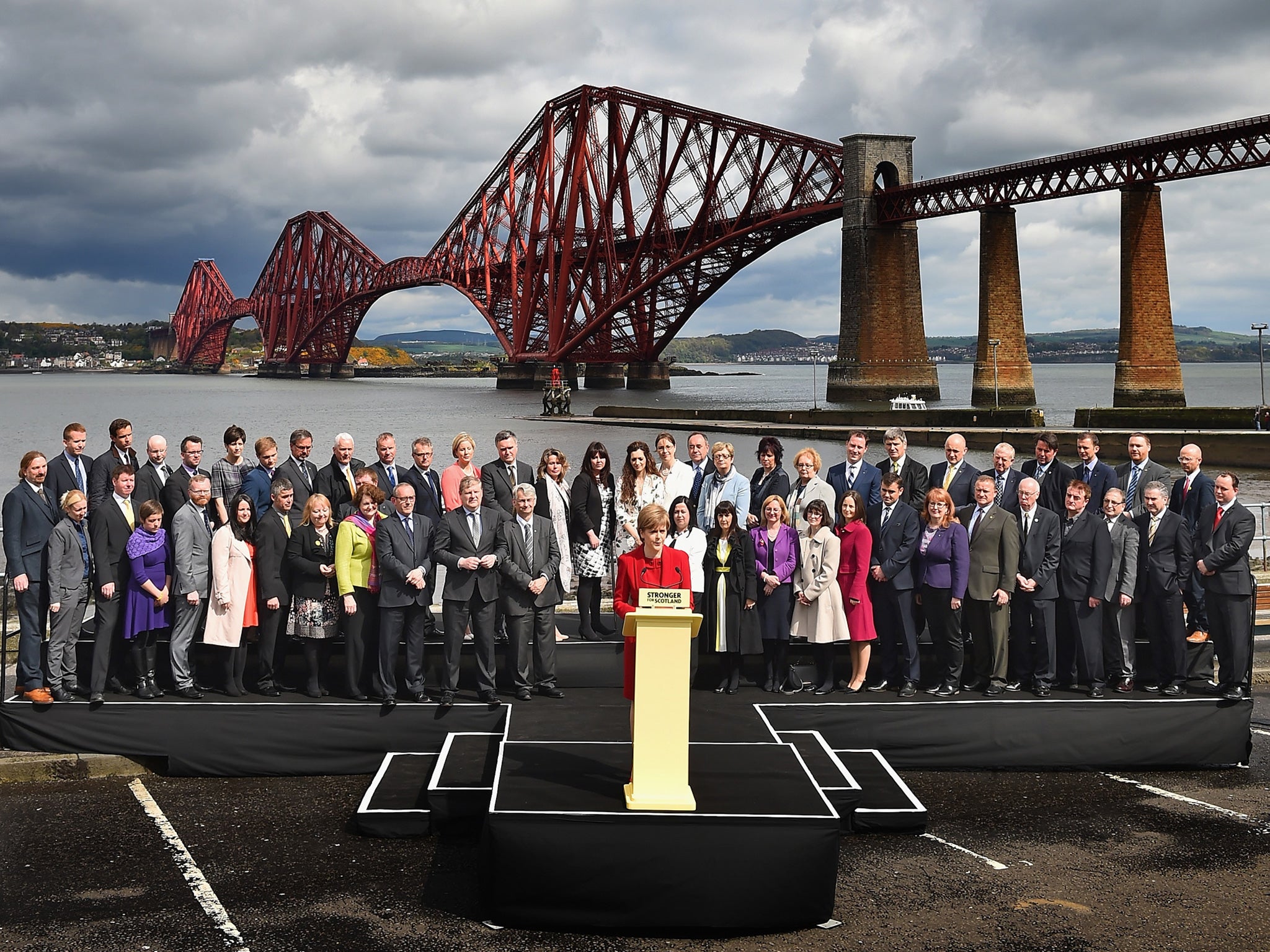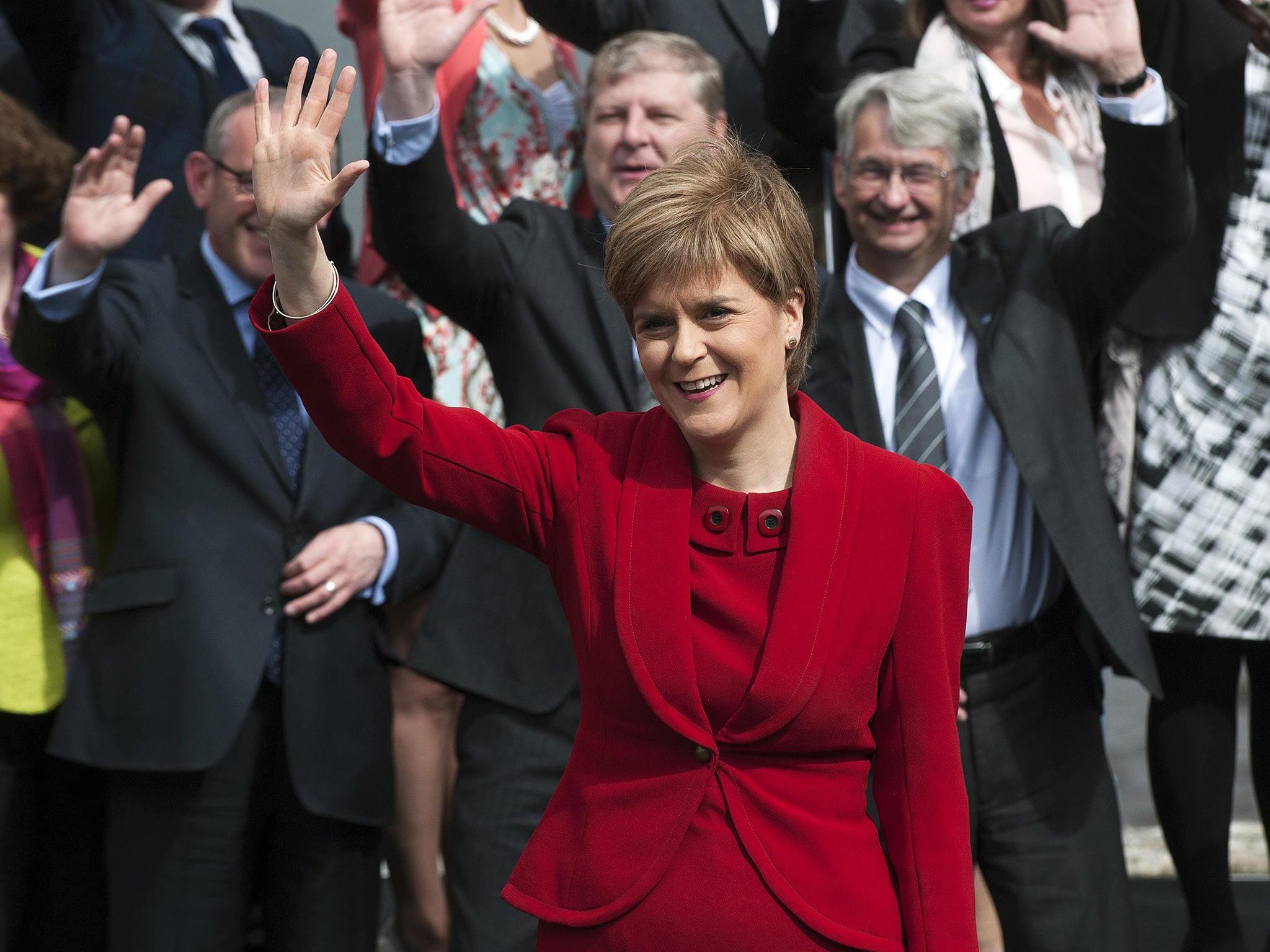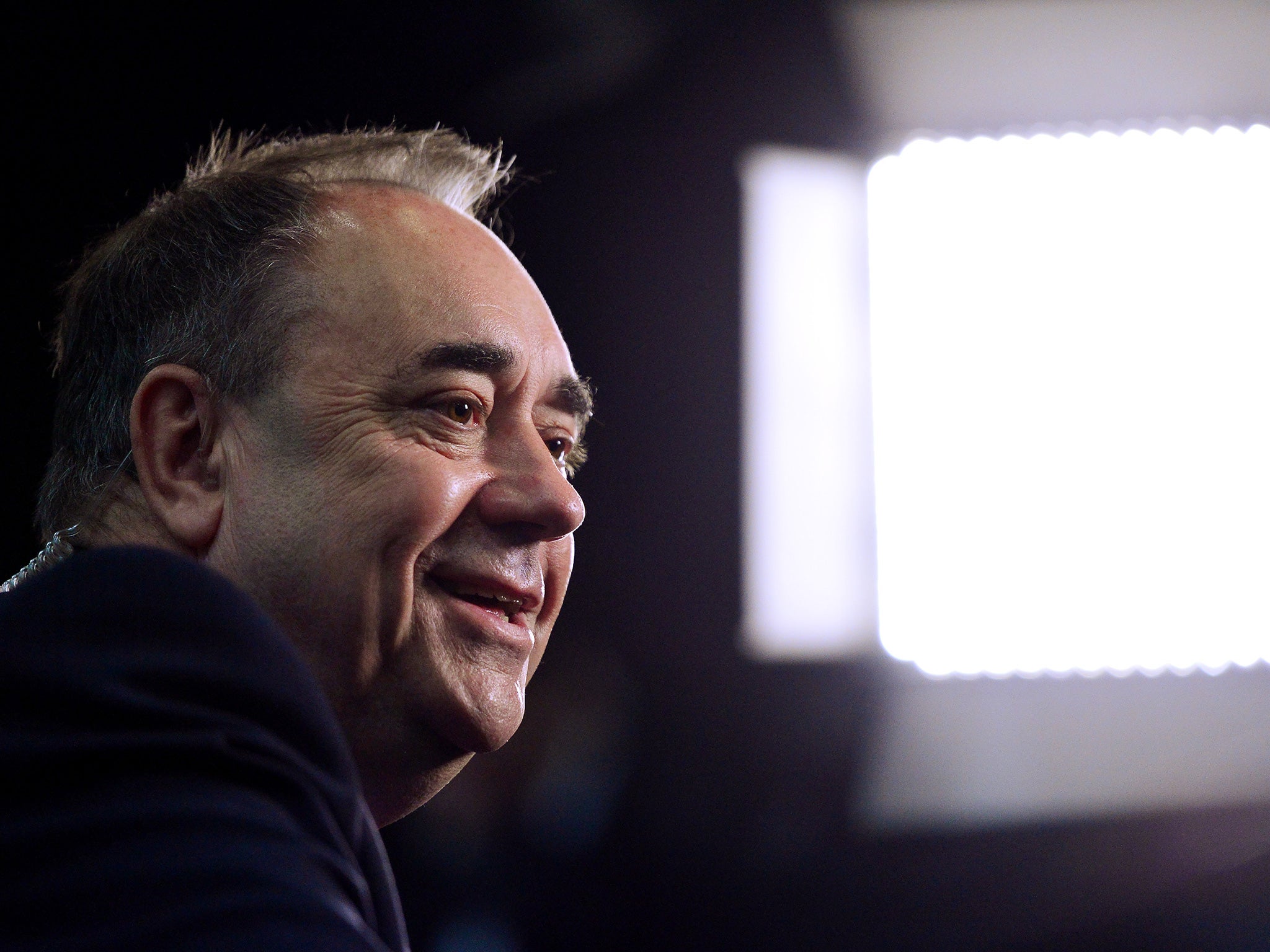All 56 newly elected SNP politicians to fly together to Westminster to show Cameron they are 'principle opposition'
The large block of SNP MPs will be the third largest force in the Commons for the next five years

Your support helps us to tell the story
From reproductive rights to climate change to Big Tech, The Independent is on the ground when the story is developing. Whether it's investigating the financials of Elon Musk's pro-Trump PAC or producing our latest documentary, 'The A Word', which shines a light on the American women fighting for reproductive rights, we know how important it is to parse out the facts from the messaging.
At such a critical moment in US history, we need reporters on the ground. Your donation allows us to keep sending journalists to speak to both sides of the story.
The Independent is trusted by Americans across the entire political spectrum. And unlike many other quality news outlets, we choose not to lock Americans out of our reporting and analysis with paywalls. We believe quality journalism should be available to everyone, paid for by those who can afford it.
Your support makes all the difference.The 56 newly elected Scottish National Party MPs will fly together to London on 11 May in a show of strength aimed at reinforcing Nicola Sturgeon's claim they will be the “principle opposition” to David Cameron at Westminster.
She also pulled rank on her predecessor, Alex Salmond, after he said the SNP’s stunning achievement in winning all but three of Scotland’s seats had brought independence closer.
Ms Sturgeon insisted that her party would present the most determined resistance to the new Conservative government’s plans to slash public spending because Labour had turned in on itself following last week’s heavy defeat.
The large block of SNP MPs, who captured 40 Labour and 10 Liberal Democrat seats to add to the six they previously held, will be the third largest force in the Commons for the next five years.
They are also expected to make common cause with the three Plaid Cymru MPs and the Greens’ Caroline Lucas to oppose austerity measures including moves to cut welfare spending by £12bn.
The SNP will also press for more economic powers to be devolved to Holyrood from London, including responsibility for business taxes, employment, the minimum wage and benefits, than have been agreed by the Conservatives with Labour and Liberal Democrat support.
Ms Sturgeon maintained that the SNP contingent would be able to wield decisive influence at Westminster despite Mr Cameron’s success in securing a small overall majority.
“Scotland clearly doesn’t want austerity to continue and there are discussions we will require to have about the Scottish Parliament and Scottish Government’s budget, discussions I will want to have about £12bn of welfare cuts that David Cameron didn’t specify in the election that will hit disabled people,” she told BBC1’s Andrew Marr Show.
“The will of the Scottish people has to be listened to. I think it’s likely, given that Labour are entering a period of introspection and questioning their very purpose in life, the SNP is going to be the principle opposition to the Conservatives.”

Eight months after Scotland voted to stay within the United Kingdom, the First Minister said her party was not “changing our tune” on independence. The SNP stressed during the election campaign that it did not seek to reopen the question of separation from the UK.
But Mr Salmond, who will return to Westminster as the MP for Gordon in Aberdeenshire, said the SNP landslide had boosted the momentum towards independence.
“Scotland has seen a number of days that many people thought we would never see,” Mr Salmond said. “People thought there would never be a Scottish Parliament. Then some people thought there would never be an SNP government, some people thought there would never be a majority SNP government. So this is the latest staging post in what seems progress for Scottish people.”

Insisting there was no disagreement with her predecessor, Ms Sturgeon said: “This general election campaign was not about independence.
“I said that repeatedly, I said it consistently and I said expressly to people in Scotland that if they voted SNP, and half of the Scottish population did, I would not take that as an endorsement of independence. I stick to that position.”
Mr Cameron said yesterday he was very confident he would not be the last Prime Minister of the UK and said there would not be another independence referendum.
“We had the referendum and the SNP aren't pushing for another referendum actually, Nicola Sturgeon said that vote in the general election was not about another referendum,” he told Channel 4 News.
“Now what we need to do is bring the United Kingdom together. We are going to do that by delivering the devolution settlement in Wales, delivering the devolution settlement in Scotland, keeping all the pledges that were made.”
The new Leader of the Commons, Chris Grayling, who is expected to take charge of devolving fresh powers to Holyrood, said: “We will keep our promise to create the strongest devolved government anywhere in the world for Scotland.”
Join our commenting forum
Join thought-provoking conversations, follow other Independent readers and see their replies
0Comments